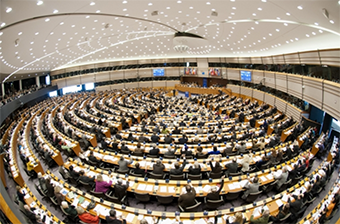
EEE-YFU
UCLG welcomes the outcome document on the Council of the European Union’s priorities and objectives for Habitat III, released on May 12.
The Council proposes five building-blocks for the New Urban Agenda: inclusive and safe cities (based on social inclusion and poverty eradication), green and resilient cities (with a focus on environmental sustainability), prosperous and innovative cities (with a local economic development approach), and good urban governance (including the strengthening of local and central governments and participatory decision-making processes).
Local and regional governments share the Council’s goal of promoting "well-managed, liveable, socially inclusive and safe, resilient, resource-efficient and environmentally sustainable, as well as economically prosperous, cities of all sizes".
We warmly welcome the commitment of the EU and its Members States to "support the effective engagement of local authorities in the implementation of the New Urban Agenda, of related SDGs and of the 2030 Agenda" through improving their access to public and private sources of financing, including overseas development aid.
UCLG also welcomes the recognition of local authorities as "policy makers in their own right", that should be "involved and consulted at all stages of the policy cycle", for a "well-designed system of multi-level governance".
We would like to underline the EU’s recognition that good urban governance requires "rights-based and decentralisation policy frameworks", and sound municipal finances, including various sources of financing. We take note of the EU’s support for capacity-building strategies, including peer-to-peer learning and city-to-city cooperation.
We equally welcome the text’s acknowledgement of the need to "closely associate and involve" local authorities in the follow-up and review of the New Urban Agenda "in line with the principle of subsidiarity, proportionality and multilevel governance."
Finally, we celebrate the Council’s recognition of the importance of improving territorial cohesion and urban-rural linkages in the New Urban Agenda, and we share the Council’s view that culture and public space play a "central role" in, and are fundamental conditions for, citizen participation and ownership of the agenda.
More information:










